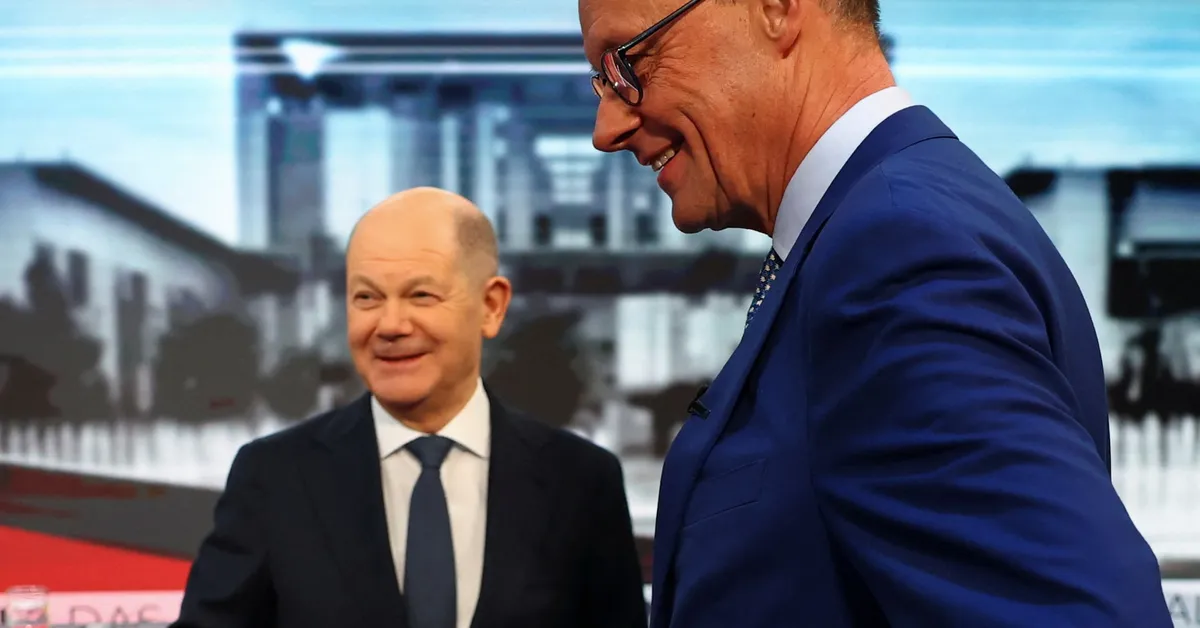
On March 4, 2023, the parties negotiating to form Germany's next government reached a significant agreement aimed at revitalizing the nation’s economy and military. They have proposed the creation of a 500 billion euro infrastructure fund and an overhaul of borrowing rules, marking a substantial shift in fiscal policy intended to bolster growth in Europe's largest economy.
The conservative party, led by Friedrich Merz, and the Social Democrats (SPD) are currently in discussions to form a coalition after the national elections held last month. Their proposals are set to be presented to the German parliament next week, showcasing a commitment to address pressing economic challenges and national security concerns.
The urgency for these reforms has been heightened by recent geopolitical developments, particularly following the return of Donald Trump to the White House, which has caused turmoil in the transatlantic alliance. This situation emphasizes the need for Europe to enhance its own defenses. Trump’s recent freeze on military aid to Ukraine, following a contentious interaction with President Volodymyr Zelenskiy, has further intensified fears that he may seek a deal with Russia that could undermine European security.
Economic experts and investors are advocating for a reform of Germany's constitutionally mandated borrowing limits, known as the debt brake. This reform aims to unlock investment opportunities and support an economy that has faced contraction over the past two years. The proposed changes would represent a rollback of borrowing constraints established following the 2008 global financial crisis, which many have criticized as outdated and overly restrictive.
Friedrich Merz, the leader of the CDU/CSU conservatives, stated that in light of current threats to freedom and peace in Europe, there is a pressing need to expand defense spending significantly. He emphasized the importance of the United States maintaining its commitment to mutual alliance obligations while acknowledging the necessity for Germany to enhance its national defense capabilities.
The euro experienced a rally, reaching a three-month high, while German government bonds saw a sharp decline, and stock futures rose in response to the news. Shares of European defense companies have surged, indicating growing momentum to increase military spending across the region. According to Robin Winkler, chief economist at Deutsche Bank Research, these developments may represent one of the most historic shifts in postwar German history, with potential positive implications for the country's economic growth forecast.
Merz announced that the CDU/CSU and SPD parliamentary group would propose a motion next week to amend the constitution, allowing defense spending above 1% of economic output to be exempt from the debt brake. An expert commission will also work on a proposal to modernize the debt brake for sustained investment support.
As the conservatives and SPD rush to pass these legislative changes in the outgoing parliament, they face a challenge; far-right and far-left parties are expected to hold a blocking minority in the new parliament following strong election results. The Greens party, whose support is essential for the debt brake reform, has indicated they will review the proposals but has not made any firm commitments yet.
According to Sebastian Dullien from the IMK institute, the outcome of these negotiations represents a potential turning point for the German economy. If successful, this initiative could swiftly overcome economic stagnation by facilitating much-needed investments and shifting the overall economic mood positively. The nation's ability to act both economically and militarily is poised for a significant revival.
Merz is scheduled to meet with outgoing SPD Chancellor Olaf Scholz to discuss additional aid for Ukraine, which could amount to over 3 billion euros. SPD leader Lars Klingbeil echoed the need for substantial investment to prevent further deterioration of the country’s infrastructure and capabilities.
The United States has consistently urged Germany to increase its defense spending, addressing a military that has felt neglected since the Cold War and has diverted resources to support Ukraine in its conflict with Russia. As Carsten Brzeski, global head of macro at ING, noted, Europe is undergoing significant changes, and the recent developments in Germany may initiate a fiscal package that could signal a brighter economic future.